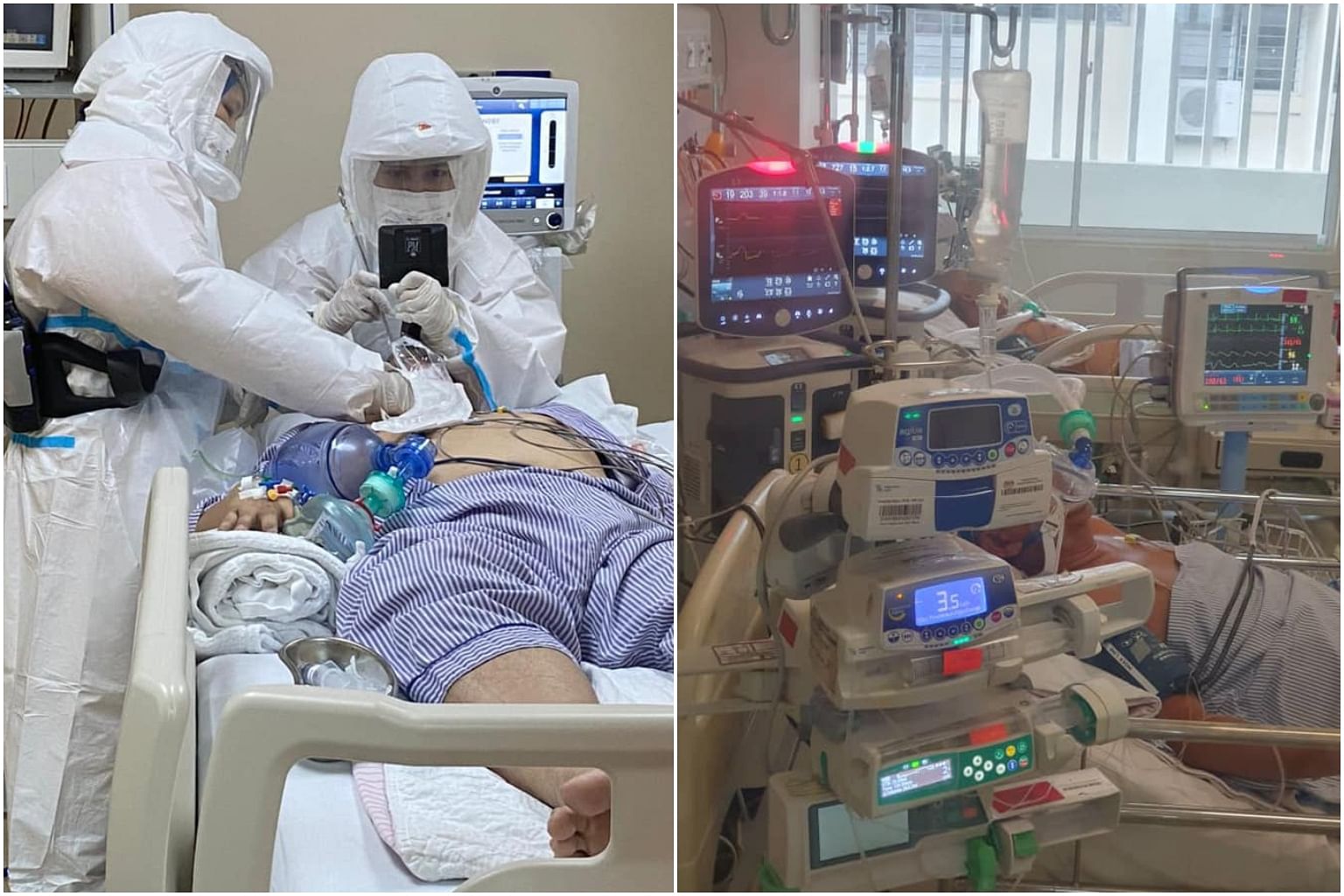Grim outlook: Malaysia's new Covid-19 daily cases may hit 7,000 by end-May


KUALA LUMPUR - Malaysia's top health official on Saturday (May 8) painted a grim picture of the country's struggle against the coronavirus pandemic, saying new cases could hit 7,000 a day by the end of this month.
Malaysia was initially projected to record about 3,000 cases by mid-May, and 5,000 cases by the end of the month, said the Health Ministry's director-general, Tan Sri Dr Noor Hisham Abdullah.
"It was projected that Malaysia would record 5,000 cases by the end of May and around 3,000 cases by mid-month," he told a press conference at the ministry in Putrajaya, his first since March 4.
"But now, two weeks before the middle of the month, we have recorded more than 3,000 cases," he said, adding that with daily cases exceeding 4,000 in the first week of May, the figure could worsen if people fail to comply with health protocols.
"We expect 5,000 by mid-May now, and by the end of May, cases may rise to even 6,000 to 7,000, depending on us, whether we break the chain of infection."
He added: "These are a very crucial two to four weeks for us to contain the infection. We cannot succeed without the collaboration of the people. Stay at home if possible. Have an in-house Hari Raya among yourselves just like last year. Last year after Hari Raya, there was no surge of infections. Why can't we do it again?"
"Aggressive" Covid-19 variants from abroad are already spreading in several Malaysian states, with more young people being infected, Dr Noor Hisham said.
He had on Friday warned that critically-ill patient numbers had hit a record high of 506 admissions, and said the government is adding more beds to intensive care units.
His warning comes just ahead of the Hari Raya festival on Thursday, when people typically throw caution aside by travelling to meet families and friends.
Even though travelling between states and districts is banned, Hari Raya visiting is allowed within districts, and capped at between 15 and 25 people, depending on which tier of the shutdown the state is in.
Daily cases hit 4,519 on Saturday after Friday's 4,498, which was then a three-month high.
Malaysia until now had logged only three occasions when the daily tally exceeded 5,000 cases, at the end of January.
The highest number of cases per day recorded was 5,728 on Jan 31.
Amid concerns over the rise in ICU patients, Dr Noor Hisham has been posting photos and videos of hospitals and their ICUs since last week, to instill public awareness.
“We are almost running out of beds. Please stay healthy and stay safe,” he wrote six days ago.
The healthcare system is being stretched to its limit with a 44 per cent increase in ICU patients compared to two weeks ago.
Over 20 hospitals designated for the pandemic have reached ICU bed occupancy levels of between 70 to over 100 per cent, while some hospitals that did not previously deal with Covid-19 patients are now doing so, Dr Noor Hisham said. Private hospitals are also treating Covid-19 patients.
The government has been widely blamed for failing to discourage people from gathering in large numbers since the Muslim fasting month started last month.
It allowed Ramadan food bazaars to reopen this year and gave the nod for mosques to hold Ramadan prayer services. Restaurants, which usually shut at midnight, were told they could stay open until 6am.
Dr Noor Hisham warned on Saturday: “Because now the cases are very high, if you are infected, come to the hospital, if we do not have ICU beds, we are in trouble.

“So then, we don’t want to end up like countries, where we have to select who will live and who will die.”
One of those who had a family member admitted into the ICU was Madam Au Yong Pei Yi, whose husband spent 12 days battling for his life in the ICU and was only just moved to a normal ward on Friday.
Mr Fong Chee Sum, 51, was intubated, and needed a chest tube after one of his lungs collapsed, Madam Au Yong told The Straits Times.
Mr Fong, a company secretary, tested positive for Covid-19 on April 22 after he realised he lost his sense of smell.
“On Sunday night (April 25), he was struggling to breathe. I felt uneasy so I called 999,” Madam Au Yong said.
When the ambulance came, his blood pressure was high and his oxygen levels low. He was barely conscious and needed to be intubated upon arrival at the hospital.
Madam Au Yong urges everyone to comply with safety protocols.
“We have to take care of ourselves. Hospitals are out of beds. Covid-19 is extremely dangerous. You never know where and when you might pick it up.”
Meanwhile, the daughter of another Covid-19 patient, Madam Maria, said her 87-year-old father contracted the disease in January, and became ill again after he was sent home after being hospitalised for 10 days.
“He became fatigued, and had lost his appetite,” the teacher told ST.
He turned out to have low oxygen levels, and was experiencing what is known as a cytokine storm, or an excessive immune reaction in Covid-19 patients. He was in the ICU for nearly three weeks before breathing his last.
“The virus is very virulent, and the effects of the virus can be present 10 days after the initial fever. Even if you think you are okay, you can develop a cytokine storm and that will cause terrible side effects,” she said.
This article was first published in The Straits Times. Permission required for reproduction.